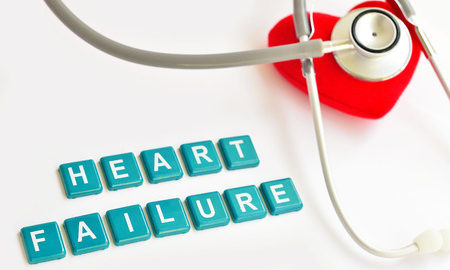Stem Cell Muscle Patch for Heart Failure

Scientists are testing a pathbreaking technique to treat heart failure. Using a muscle patch made from the patient’s own stem cells, the researchers have succeeded in repairing damaged hearts with promising results.
What is heart failure?
When the heart can no longer properly perform its function of pumping blood to the body, it is termed heart failure. It is estimated that more than 5.5 million Americans are living with heart failure. The condition is responsible for approximately 1 out of 9 deaths in the country.
There are several underlying causes of heart failure. Diabetes, high blood pressure, and coronary artery disease may all lead to heart failure. Lifestyle and behavior factors that can cause heart failure include lack of exercise, high-fat diet, smoking, and obesity.
What are the treatments for heart failure?
Current therapies for heart failure include interventions that address the underlying cause. For example, a physician may treat high blood pressure to prevent further damage to the heart muscle, control symptoms, and improve the individual’s quality of life and lifespan. In more advanced cases, where medications and lifestyle modifications are inadequate, pacemakers and implantable defibrillators are used to get the heart beating rhythmically again. In extreme cases, a heart transplant is the last resort, but the shortage of donor organs makes this a challenge.
What is the stem cell muscle patch for heart failure?
Scientists are trying to find a good long-term treatment for heart failure, a condition that is often fatal. Regenerating heart muscle is the ideal solution. The findings of the current study show that this may, in fact, be possible one day.
The study, which was published in the Journal of the American Heart Association, investigated the usefulness of a patch fashioned from muscle stem cells to repair damaged hearts. A team of scientists had previously tested the technique in mice. The experiments were conducted in humans to evaluate the safety and potential benefits.
Study Findings for Stem Cell Muscle Patch for Damaged Hearts
A total of 27 patients – 12 with dilated cardiomyopathy and 15 with ischemic cardiomyopathy – were enrolled in the study. All the study participants had limited exercise abilities and were unresponsive to conventional heart failure treatments.
In phase 1 of the trial, patches were fashioned from stem cells obtained from the vastus medialis (thigh) muscle of the participants. The patches, which were autologous and derived from somatic tissue, were glued surgically onto the patient’s left ventricle in the heart.
The hope was that the paracrine effect of stem cells would benefit the damaged heart tissue. The implanted stem cells secrete growth factors and encourage regeneration and repair of damaged tissue. The findings showed that the patch helped failing heart muscle to perform better. No significant complications were reported. One year following the patch, study participants showed improved exercise tolerance and heart function.
The authors concluded that autologous cell-sheet transplants are a novel and feasible therapy for cardiomyopathy in terms of both safety and recovery of function. Larger studies are warranted to confirm the therapeutic effect of skeletal muscle stem cell patches in patients with severe congestive heart failure.
References:
- https://www.medicalnewstoday.com/articles/316765.php


